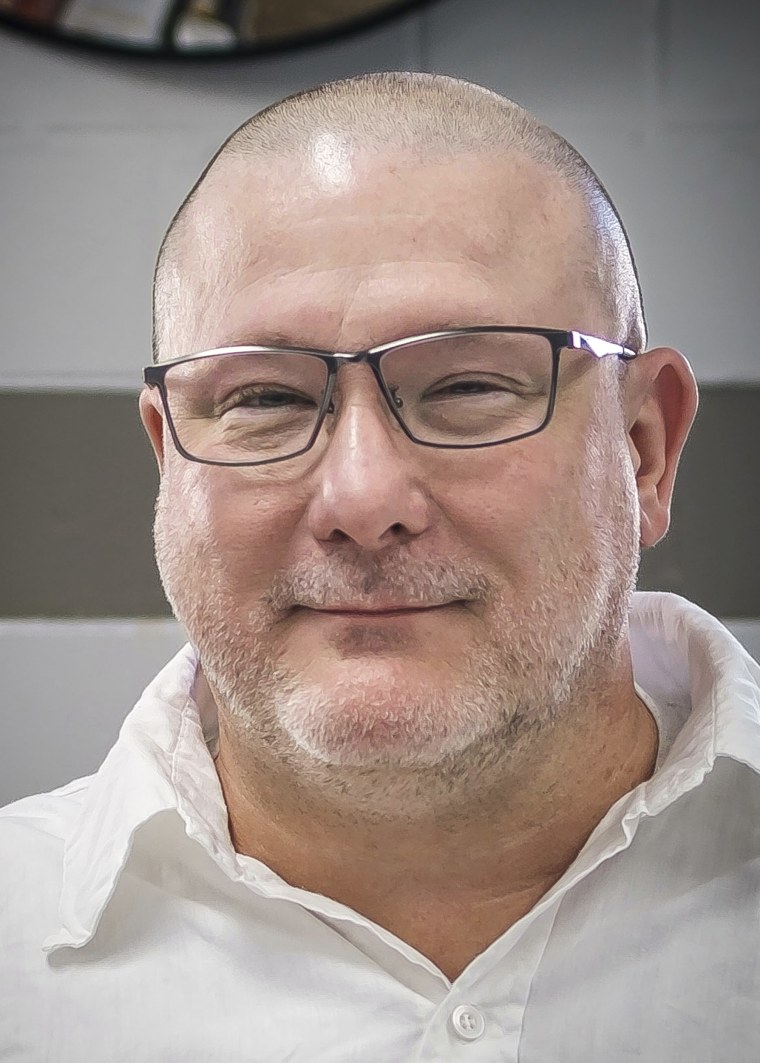Despite dozens of prison staffers’ campaign to save him, Missouri on Tuesday executed Brian Dorsey for killing his cousin and her husband in 2006.
Dorsey, 51, was the first prisoner sentenced to death to be executed in Missouri this year. He was pronounced dead at 6:11 p.m. local time at the state prison in Bonne Terre after a single-dose injection of the sedative pentobarbital, the Associated Press reported.
In a letter to Gov. Mike Parson asking him to spare Dorsey’s life, prison staffers had called Dorsey a “model inmate” who even cut the warden’s hair after being allowed to work as a barber. On Monday, Parson said the execution would go forward.
Dorsey, who had requested clemency, thanked those who tried to save his life.
“To my family, friends, and all of those that tried to prevent this, I love you!” he said in a handwritten note that he left as his last words. “I am grateful for you. I have peace in my heart in large part because of you and I thank you. To all those on ALL sides of this sentence, I carry no ill will or anger, only acceptance and understanding.”
On Tuesday, the U.S. Supreme Court denied last-minute attempts to halt the execution, including an application for a stay of execution and a request that it review a lower court’s affirmation of the sentence.
Dorsey was convicted of murdering cousin Sarah Bonnie and her husband, Ben Bonnie, after he asked for their help because, he said, two drug dealers were at his door demanding he pay his debts.

The pair took him home on Dec. 23, 2006, with plans for Dorsey to stay over, when he grabbed his cousin’s shotgun and opened fire, killing the pair.
Their 4-year-old daughter was home and physically unharmed. Dorsey pleaded guilty to two counts of first-degree murder, forgoing trial, but a jury was seated for sentencing in 2008.
It found seven aggravating factors that contributed to its recommendation of death, later ordered by the Missouri Supreme Court. Among the factors was Dorsey’s assault on his cousin’s body after she was shot, authorities said.
In his last words, Dorsey apologized for his actions.
“To all of the family and loved ones I share with Sarah and to all of the surviving family and loved ones of Ben, I am totally, deeply, overwhelmingly sorry,” he wrote. “Words cannot hold the just weight of my guilt and shame. I still love you. I never wanted to hurt anyone. I am sorry I hurt them and you.”
Dorsey had also previously apologized, saying he was in a drug-induced state of psychosis when he shot the couple. Later, he appealed his sentence on grounds his lawyers presented insufficient defense because the state paid them a flat fee that disincentivized performance.
His defense presented a clinical psychologist who recited a history for Dorsey that included mental health issues, suicide attempts and drug addiction, according to the Missouri Supreme Court’s affirmation of his sentence in March.
In recent months, Dorsey was joined by unexpected allies in his fight to live: dozens of Missouri Corrections Department employees who urged Parson to grant clemency.
“I knew Brian Dorsey for many years, and I can say without hesitation that he was completely rehabilitated,” Tim Lancaster, a retired Missouri Department of Corrections officer, said in a statement released ahead of the execution.
He continued, “Brian cut my hair, and we would talk, and I know he felt deep shame and remorse about what he had done. He was a good person who made a mistake and was working to do better. I thought that was what we hoped for by sending people to prison.”
Jenni Gerhauser, a cousin of Dorsey’s and Sarah Bonnie, joined those who wanted to see the execution thwarted by courts or clemency. She said in a statement ahead of the execution Tuesday that contemporary justice “failed Brian.”
“We are not so blinded by our love for him that we don’t understand that he was convicted of committing a terrible crime against someone we loved just as deeply as we do Brian, but nor are we capable of rewriting history to convince ourselves that Brian still isn’t the same loving, compassionate, helpful person he always was,” she said.
She added, “We know that if he had been in control of his thoughts and actions whatsoever, none of us would be in this position today.”